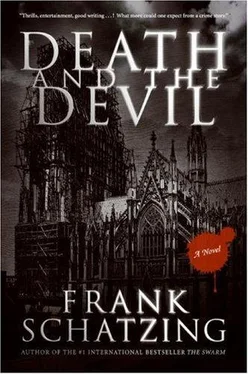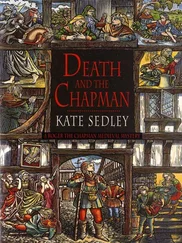He sensed it in his small body. He was filled with love and reverence for true beauty, which came to him as a refreshing draught, a blessing from the Almighty. He was aware of his beating heart and fevered brow, felt the bliss only a boy in love can feel.
They stood there, gaping. Jacob’s mother forgot the steward’s man with the cart and when they went to find him, hours later, he was gone. They had to walk. It was a long way to their village for little Jacob, who fell into a gentle sleep as they sat under an oak tree in the night, his heart full of Isabella and the hope that after all there was a God who loved mankind.
It was late the following afternoon that they reached the farm.
His father beat his mother till she collapsed. What did she think she was doing, he screamed at her, staying away for so long? She did not reply. There were no words for this world, nor for the world to come, toward which she had turned her eyes.
A few days passed. Jacob’s mother died.
She passed away without her smile and Jacob’s father stood there, stone-faced.
From that day on life on the farm was one long hell. The following year the fever returned and carried off more of Jacob’s brothers and sisters. The youngest suffered an even worse fate when the handle of the pot over the fire broke, sending a flood of boiling water over the floor and into the hollow. This time the priest did not come. He sent a message to say he had important business to deal with and would come, if possible, at the next full moon. Jacob’s father didn’t wait that long, and another small grave appeared behind the house. After that he stopped talking to other people and refused to have anything to do with them. Jacob heard other children say he had the evil eye and had probably turned various people into pigs in order to increase his livestock. Suddenly Jacob too was regarded with suspicion. Red hair was not a sign of a good Christian. They started throwing stones at him and he had no idea why.
One day a wandering journeyman, with the latest news from Cologne, knocked on the door, looking for a bed for the night. Whether it was his total isolation from other company, or the fact that he went more and more in fear of his life because he was supposed to dabble in the black arts, his father offered the journeyman lodging for a few days. In return for the bed and the hard, black peasant bread, the man talked all the time of what was going on in the world and his father listened, in silence as always, just shaking his head now and then.
Jacob listened, too, breathless and with shining eyes. The dark room was suddenly alive with strange figures and happenings, and he greedily absorbed every word, without understanding the least of what was said. But he felt once more the fascination of a strange and exciting world in which everything seemed to be of the utmost complexity.
Thus they learned that the old archbishop had died and been succeeded by Conrad von Hochstaden. The most fantastic stories were circulating about him. If their guest was to be believed, this Conrad was something of a villain, violent and dangerous, quite willing to engineer an opportune accident. Before his election as archbishop he was provost of St. Mary’s-by-the-Steps. At some point he must have decided that was not enough for a man of his ability and assigned the office of provost of the cathedral chapter to himself, even though the post was already occupied. He suggested to the old provost he should vacate his house as quickly as possible, which the latter refused to do. Conrad solved the embarrassing situation by pulling strings to get the old provost excommunicated.
It was a scandal. The whole city was up in arms.
The inevitable ensued. Conrad was summoned to Rome to appear before the Curia. But the Romans had reckoned without Conrad. Hochstaden only appeared where he wanted to appear. The response was immediate. The pope’s representatives arrived in Cologne to restore the old provost to his post. He, however, did not dare enter the cathedral, where Conrad was lording it with a couple of unpleasant-looking thugs, explaining to all and sundry he would challenge anyone who refused to recognize his authority. So the provost sent a proxy for the papal legates to install in office, saying he would deal with the matter himself once Conrad had given in and crawled back to that den of iniquity known as St. Mary’s.
All hell was let loose. Foaming with rage, Conrad dragged the legates out of the cathedral by the hair. Then he set off at the head of his gang for the provost’s house, where they removed everything that wasn’t actually nailed down, smashed the rest to bits, and took the terrified old man prisoner.
Enough, the pope decided, was enough. One of his flock was defying the power of the Holy Roman Church and some of its most distinguished servants. Very soon, Conrad found himself excommunicated. The interdict was pronounced and Conrad would doubtless have come to a sorry end had not events taken a completely absurd turn.
Conrad was elected archbishop.
Had he had the time, Conrad would probably have laughed himself silly. As it was, he was all sweetness and light, released the provost from captivity, dusted him down, and apologized to him. What had their disagreement been about? Provost of the cathedral chapter? The old man was provost of the chapter.
So the good burghers of Cologne had a bully as archbishop. But Conrad was not stupid. He knew that the citizens had more than once made their opinion of their archiepiscopal lords crystal clear. Just under two hundred years ago they had thrown Archbishop Anno out because he had commandeered a ship for his guest, the bishop of Münster. Christ Almighty, what was a ship and a bit of cargo that had been thrown into the Rhine so that Münster would not have to sit among flax and cheese! But Anno had been forced to flee, slipping out by a tunnel like a rat, otherwise the citizens would probably have killed him.
And then Philip von Heinsberg, who had left the city, only to find they had immediately started building a wall behind his back. Fine to have a wall, but shouldn’t the bastards have asked first?
Finally Engelbert von Berg. He had been stabbed in the back by his own nephew. The nephew didn’t come from Cologne, true, but that was irrelevant. Engelbert had been the city’s lord and master, and that was why he had been killed. The citizens of Cologne had blood on their hands, sacred blood!
And Conrad’s predecessor? He had made debts. Of course he had! What was money in the fight against the Devil? What in Christ’s name was it that made the Cologne merchants insist on repayment of their loans, as if the archbishop were a common debtor, at the same time denouncing him to the pope as a libertine who committed fornication with the wives of German knights and squandered their money on feasting and orgies?
Impudent, ungrateful rabble!
But the city was also the leading trading power in the empire and enjoyed privileges that made it as good as a free imperial city, such as the right to levy dues and mint coins. To make an enemy of the city would only bring problems. Better to acknowledge their rights.
For the moment at least.
The journeyman had also heard that the people in Cologne did not really trust Conrad. Everyone knew that the new archbishop’s cleverness was only surpassed by his unscrupulousness. For the moment he appeared as meek as a little lamb, though in the opinion of the citizens he was anything but meek and bore no resemblance whatsoever to a harmless grass-eater. Things were bound to get lively at some point, that was for sure.
Conrad was simply too crafty.
For the moment, though, no one had any complaints. On the contrary. He had opened two ale houses, the Medehuys in Old Market Square and the Middes in Follerstraße. That had meant a beer tax, but as long as they had plenty to drink, the burghers of Cologne were not too worried about taxes. No one had forgotten that terrible time, in 1225, when Archbishop Engelbert had briefly forbidden the brewing of beer.
Читать дальше












